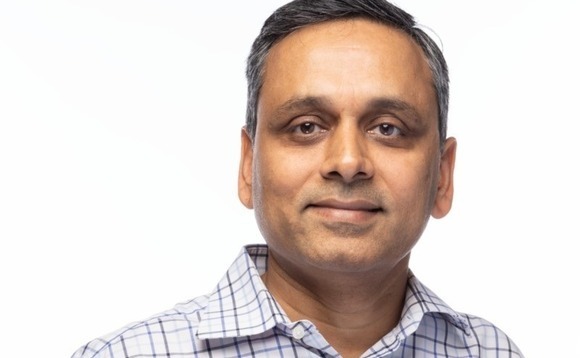
Fund focus: A91 basks in India afterglow

Having increased its Fund II hard cap to $550 million in response to investor demand, the Indian manager is ready to address an Indian market that is increasingly digital, VC-exposed, and expensive
On launching its debut fund in 2019, India-focused A91 Partners expected half the portfolio to comprise investments in start-ups that had not previously received institutional funding, having existed below the radar of typical VCs. As it turned out, these companies accounted for around 35%.
For Fund II, which recently closed with $550 million in commitments, that share is likely to be even lower. It isn't through a lack of interest. Rather, venture capital has penetrated so deeply into India's economy that few companies of interest haven't felt its touch. Within this group, however, is a subset of start-ups that have received limited funding because they had little need for it.
"There are companies that have no concept of Series A, B and C because they don't need lots of capital to achieve profitability. In many cases, we wouldn't be the first investor, but they aren't raising hundreds of millions of dollars across multiple rounds, and they turn profitable relatively early on," says Abhay Pandey (pictured), a general partner at A91. "We like this, and it will continue to be a large part of Fund II."
A91 made 13 investments from Fund I across consumer, financial services, healthcare, and technology. Much the same is expected of Fund II – A91 describes its strategy as chasing the India consumption opportunity – except there will be a couple more investments and a greater emphasis on digitalization.
This will be manifested in two ways. First, portfolio companies must be digitally savvy. This doesn't rule out investments in more traditional areas such as B9 Beverages and spice maker Pushp, "but they will have to significantly advance their digital capabilities," says Pandey. Second, software-as-a-service (SaaS) start-ups that leverage Indian back-office competencies to serve global markets will be increasingly prevalent. There are two SaaS companies in Fund I and another pureplay software provider.
Another change, driven by external factors, is larger equity checks. "Every company, compared to where they were in 2019-2020, is significantly more expensive," says Pandey. "This makes sense because the market opportunity is growing quickly, but on a pure multiple basis, valuations are up. If we paid 4x for a consumer company with a tech-enabled model in 2019, today they would want 8x."
He notes that the number of foreign investors hasn't necessarily increased, but they have more capital at their disposal. Meanwhile, the domestic manager universe has expanded in terms of both number of participants and quantum of capital. Private equity investment is a record $48.8 billion year-to-date – 87% of that has gone into early and growth-stage deals, while the technology sector share is 68%.
At the same time, exits are on a roll. Aggregate exit proceeds are $18.8 billion, while IPO liquidity events exceed $5.4 billion – both all-time highs. A91 expects two portfolio companies to go public next year.
"India is getting all the love, some of it for the wrong reasons. But for the first time in a decade, people are getting money back from India. LPs have been very patient," Pandey says. "There are a lot of conversations about IPOs. These are real considerations, whereas earlier it was just a dream."
Much of the IPO momentum is from pre-profit technology start-ups that were previously unwelcome on domestic exchanges. Pandey describes the newfound acceptance as a "structural shift" – in terms of regulation and domestic investor mindset – although he acknowledges there will always be some element of overhype. "We will see ups and downs," he says. "We've seen that in the last few IPOs."
A91, which was established in 2018 by Pandey and two fellow Sequoia Capital alumni, Gautam Mago and V.T. Bharadwaj, has benefited from the surge in positive sentiment. Fund II was oversubscribed, resulting in the hard cap being raised from $500 million to $550 million. The 20 LPs that featured in Fund I re-upped and 10 more were added, each of which had expressed interest ahead of the fundraise.
Three endowments were added – up from one in Fund I – as well as one large pension fund, an insurance company, and a few family offices. The situation was far removed from Fund I, when A91 reached out to more than 150 investors and then embarked on serious negotiations with 25 or so.
"We chose people who were aligned to how we were thinking and who could be with us for the long term," Pandey explains. "Our existing LPs wanted larger allocations, but they didn't want us to increase the fund size too much. The LPs we added were clear as to what size commitments we could accommodate, they understood what to expect, and they didn't push for more."
Latest News
Asian GPs slow implementation of ESG policies - survey
Asia-based private equity firms are assigning more dedicated resources to environment, social, and governance (ESG) programmes, but policy changes have slowed in the past 12 months, in part due to concerns raised internally and by LPs, according to a...
Singapore fintech start-up LXA gets $10m seed round
New Enterprise Associates (NEA) has led a USD 10m seed round for Singapore’s LXA, a financial technology start-up launched by a former Asia senior executive at The Blackstone Group.
India's InCred announces $60m round, claims unicorn status
Indian non-bank lender InCred Financial Services said it has received INR 5bn (USD 60m) at a valuation of at least USD 1bn from unnamed investors including “a global private equity fund.”
Insight leads $50m round for Australia's Roller
Insight Partners has led a USD 50m round for Australia’s Roller, a venue management software provider specializing in family fun parks.







